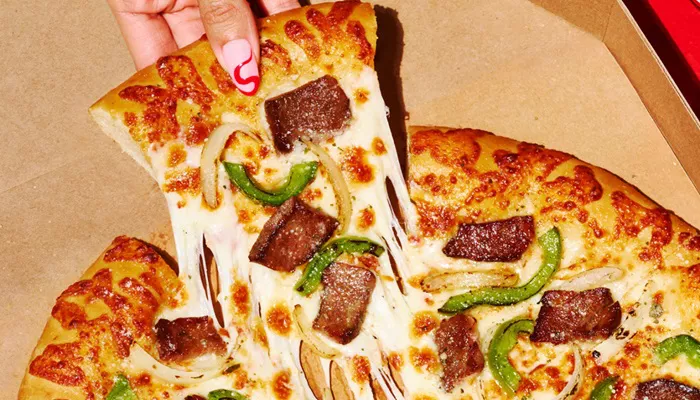Owning a franchise can be a lucrative venture, particularly in the fast-food industry. Among the various options available, Pizza Hut stands out as a well-established brand with a global presence. This article delves into the financial aspects of owning a Pizza Hut franchise, including initial investments, potential earnings, and factors influencing profitability.
The Franchise Landscape of Pizza Hut
Pizza Hut, part of Yum! Brands, Inc., has been a significant player in the pizza market since its inception in 1958. With over 19,000 locations worldwide, the brand has cultivated a loyal customer base through its diverse menu offerings and innovative marketing strategies. The franchise model allows individuals to operate under the Pizza Hut brand while benefiting from corporate support in areas such as marketing and training.
Initial Investment Requirements
To become a Pizza Hut franchisee, prospective owners must be prepared for substantial initial investments. The costs can vary significantly based on various factors including location and restaurant type.
Total Investment Range: The initial investment to open a Pizza Hut franchise typically ranges from $412,000 to $2,054,000. This wide range accounts for different types of franchises—such as dine-in, delivery, or express formats—and their specific requirements.
SEE ALSO: How Much Does A Marco Pizza Franchise Owner Make?
Breakdown of Costs:
Franchise Fee: Approximately $47,500 to $69,000.
Construction and Equipment: Costs for building out the restaurant can range from $200,000 to $1 million, depending on size and location.
Initial Inventory: Expect to spend between $3,000 to $10,000 on food ingredients and supplies.
Marketing Launch Costs: Initial marketing efforts may require an additional $10,000 to $15,000.
Ongoing Fees And Royalties
Once operational, franchisees must also consider ongoing fees that contribute to the brand’s overall marketing and support system:
Royalty Fees: Franchisees are required to pay a royalty fee of 6% of gross sales. This fee helps maintain the brand’s infrastructure and provides ongoing support.
Marketing Fees: An additional 4.75% of gross sales is allocated for national and local advertising campaigns.
These fees ensure that franchisees benefit from collective marketing efforts while maintaining brand consistency across locations.
Earnings Potential
The financial success of a Pizza Hut franchise can be gauged by examining average annual revenues and profit margins.
Average Revenue: A typical Pizza Hut franchise generates approximately $983,000 in annual revenue, with some locations reporting even higher figures based on their market position and operational efficiency.
Profit Margins: The profit margin for Pizza Hut franchises generally ranges from 10% to 15% of gross sales. Therefore, if a franchise generates $1 million in sales annually, the net profit could be between $100,000 and $150,000.
Owner Earnings: For owner-operators directly involved in daily operations, earnings can average around $145,000 annually, while semi-absentee owners may see lower profits due to management costs.
Factors Influencing Profitability
Several factors can significantly impact the profitability of a Pizza Hut franchise:
Location: The success of any restaurant heavily relies on its location.
High foot traffic areas tend to yield better sales figures compared to less accessible locations.
Operational Efficiency: Effective management practices—including inventory control and staff training—can enhance profitability by reducing waste and improving service speed.
Competition: The pizza market is highly competitive. Franchisees must differentiate their offerings through unique promotions or exceptional customer service to maintain market share.
Market Trends: Changes in consumer preferences—such as increased demand for healthier options—can influence sales.
Franchisees need to adapt their menus accordingly to meet evolving customer expectations.
Long-Term Considerations
Investing in a Pizza Hut franchise is not just about immediate returns; it also involves long-term planning:
Franchise Agreement Compliance: Franchisees must adhere strictly to the operational guidelines set forth by Pizza Hut.
This includes menu offerings, pricing strategies, and promotional activities.
Support Systems: One of the advantages of being part of a franchise is access to corporate support systems for training and marketing.
Leveraging these resources effectively can lead to sustained growth.
Market Adaptation: Staying attuned to local market conditions and consumer preferences will help franchisees remain competitive over time.
Conclusion
Owning a Pizza Hut franchise offers significant financial potential for entrepreneurs willing to invest time and resources into their business. With an average annual revenue nearing $1 million and reasonable profit margins, it presents an attractive opportunity within the fast-food sector. However, prospective franchisees must carefully consider initial investments, ongoing fees, and various factors that influence profitability before making their decision.
Related topics:
- How Much Does A Bojangles Franchise Owner Make?
- How Much Do Zaxby’s Franchise Owners Make?
- Why Did Burger King Discontinue Chicken Fries in 2012?

